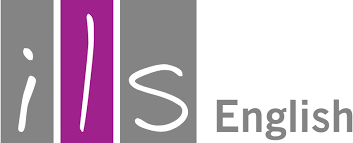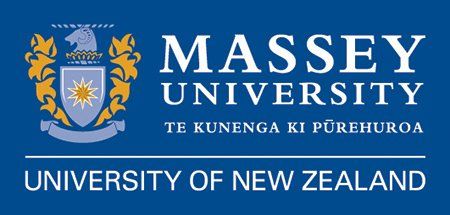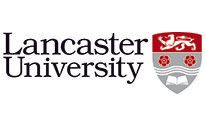
Project Cost, Quality, HR, Communication, Risk and Procurement Management (PMK Workshops 2, 3) Certified Program
Course ID: 2507140101120EGI
Course Dates : 14/07/25 Course Duration : 10 Studying Day/s Course Location: London, UK
Language: Bilingual
Course Category: Professional and CPD Training Programs
Course Subcategories: Leadership and Management Excellence
Course Certified By: * Projacs Academy
* Professional Training and CPD Programs
Certification Will Be Issued From :
KSA
Course Fees: £8,895.11
Vat Not Included in the price. VAT may vary depending on the country where the course or workshop is held.
Click to Pay
Date has passed please contact us Sales@e-s-hub.com
Course Information
Introduction
Project management is a cornerstone of organizational success, particularly in industries where complex operations require meticulous planning, resource allocation, and stakeholder engagement. Among the myriad disciplines within project management, cost, quality, human resources, communication, risk, and procurement management stand out as critical pillars that determine whether a project will meet its objectives or falter under unforeseen challenges. These areas are interconnected, with inefficiencies in one domain often cascading into others, leading to budget overruns, missed deadlines, or compromised deliverables. For professionals navigating these complexities, mastering these domains is not merely advantageous—it is essential.
The global business landscape is increasingly characterized by volatility, uncertainty, complexity, and ambiguity (VUCA), making effective project management more challenging than ever. Organizations face mounting pressure to deliver projects faster, cheaper, and with higher quality standards. Yet, many practitioners lack the comprehensive skill set needed to address these demands holistically. For instance, while some excel in cost estimation, they may struggle with aligning procurement strategies to mitigate supply chain disruptions. Similarly, teams often grapple with balancing quality assurance processes without compromising timelines. This course bridges such gaps by equipping participants with an integrated framework for managing all six dimensions effectively.
Consider the case of a multinational construction firm tasked with building a state-of-the-art hospital. Poorly managed procurement led to delays in acquiring specialized medical equipment, while inadequate risk assessment resulted in unforeseen structural issues during construction. These setbacks not only escalated costs but also damaged the company’s reputation. By contrast, organizations like Tesla have demonstrated how robust project management practices—spanning cost control, supplier negotiations, and workforce coordination—can drive innovation and operational excellence. Such examples underscore the tangible impact of mastering these competencies on both individual career trajectories and organizational outcomes.
Drawing on established frameworks such as PMBOK® Guide (Project Management Body of Knowledge) and ISO standards for quality management, this program offers a rigorous yet practical approach to addressing real-world challenges. Participants will explore tools like Earned Value Management (EVM) for tracking project performance, Total Quality Management (TQM) principles for continuous improvement, and stakeholder analysis techniques for enhancing communication effectiveness. Theoretical insights are complemented by hands-on exercises, ensuring learners can translate concepts into actionable strategies.
Another key aspect of the course is its emphasis on adaptability—a trait indispensable in today’s dynamic environments. As remote work becomes more prevalent, traditional approaches to HR and communication management must evolve. Virtual teams necessitate new methods for fostering collaboration, maintaining morale, and resolving conflicts. Meanwhile, geopolitical shifts and economic fluctuations heighten the importance of risk mitigation and agile procurement strategies. Through interactive workshops and scenario-based learning, participants will develop the flexibility required to thrive amidst change.
Ultimately, this certified program empowers professionals to become strategic assets within their organizations. Whether you’re overseeing large-scale initiatives or contributing to smaller projects, the skills acquired here will enable you to optimize resources, enhance team productivity, and deliver value consistently. By investing in your development through this course, you position yourself as a leader capable of driving sustainable growth and competitive advantage—an invaluable proposition in any industry.
Objectives
By attending this course, participants will be able to:
Analyze project cost structures using Earned Value Management (EVM) to forecast financial performance accurately.
Evaluate quality management systems based on ISO 9001 standards to ensure compliance and improve process efficiency.
Design human resource plans that align team capabilities with project requirements, promoting high-performance cultures.
Implement advanced communication strategies tailored to diverse stakeholders, including virtual teams and cross-functional groups.
Apply risk assessment methodologies to identify, prioritize, and mitigate potential threats to project success.
Who Should Attend?
This course is ideal for:
Project managers seeking to deepen their expertise across multiple domains of project management.
HR professionals responsible for talent acquisition, training, and retention in project-driven environments.
Procurement officers aiming to enhance supplier relationship management and contract negotiation skills.
Consultants and advisors who provide guidance on optimizing project workflows and achieving client goals.
Mid-to-senior-level executives interested in gaining a holistic understanding of project dynamics to inform decision-making.
Training Method
• Pre-assessment
• Live group instruction
• Use of real-world examples, case studies and exercises
• Interactive participation and discussion
• Power point presentation, LCD and flip chart
• Group activities and tests
• Each participant receives a 7” Tablet containing a copy of the presentation, slides and handouts
• Post-assessment
Program Support
This program is supported by:
* Interactive discussions
* Role-play
* Case studies and highlight the techniques available to the participants.
Daily Agenda
The course agenda will be as follows:
• Technical Session 08.30-10.00 am
• Coffee Break 10.00-10.15 am
• Technical Session 10.15-12.15 noon
• Coffee Break 12.15-12.45 pm
• Technical Session 12.45-02.30 pm
• Course Ends 02.30 pm
Course Outlines
Foundations of Project Cost Management
Introduction to cost management principles
Techniques for accurate cost estimation
Budgeting frameworks and tools
Monitoring expenditures using Earned Value Analysis
Day 2:
Advanced Cost Control Strategies
Variance analysis and corrective actions
Lifecycle costing and its implications
Financial reporting for stakeholders
Case study: Managing costs in megaprojects
Day 3:
Principles of Quality Management
Overview of quality management systems (QMS)
Key components of ISO 9001 certification
Tools for quality planning and assurance
Continuous improvement methodologies (e.g., PDCA cycle)
Day 4:
Implementing Quality Standards
Root cause analysis and problem-solving techniques
Benchmarking and best practices adoption
Auditing processes for compliance
Real-world example: Achieving zero-defect manufacturing
Day 5:
Human Resource Planning and Development
Identifying project roles and responsibilities
Recruitment and onboarding strategies
Motivation theories and their application
Conflict resolution in team settings
Week 2
Day 6:
Building High-Performance Teams
Leadership styles for different project phases
Performance appraisal and feedback mechanisms
Diversity and inclusion in project teams
Workshop: Team-building activities
Day 7:
Effective Communication Strategies
Stakeholder mapping and analysis
Tailoring messages for various audiences
Overcoming barriers in virtual communication
Crisis communication planning
Day 8:
Risk Identification and Assessment
Types of risks in project environments
Qualitative vs. quantitative risk analysis
Developing risk registers
Scenario planning exercises
Day 9:
Risk Response and Mitigation
Contingency planning and fallback options
Insurance and hedging strategies
Lessons learned from past failures
Group activity: Simulating risk scenarios
Day 10:
Procurement and Contract Management
Strategic sourcing and vendor selection
Negotiation tactics for favorable terms
Legal considerations in contract drafting
Post-contract evaluation and lessons learned



















































